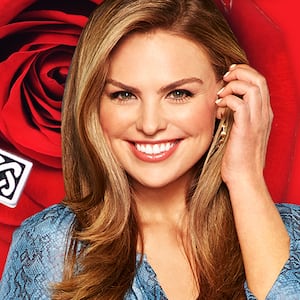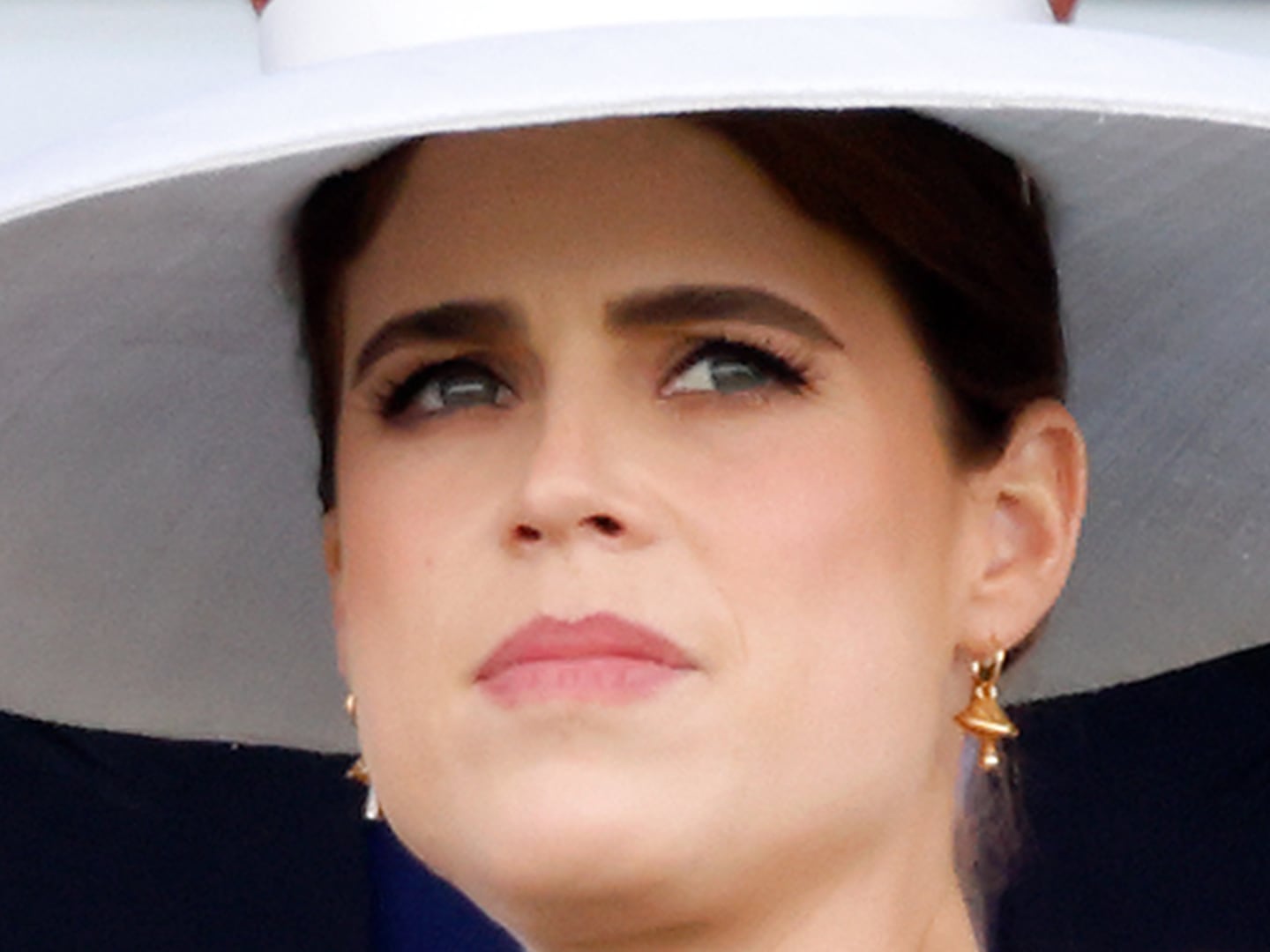Hannah Brown ended Monday night’s episode of The Bachelorette: Men Tell All with a direct address to fans, apologizing for keeping Luke Parker, this season’s slut-shaming villain, on air for so long.
Brown’s cocoon of wavy curls and chandelier earrings bounced as she said, “I’m sorry for this whole thing with Luke... I’m tired of talking about him. The Luke P. show is cancelled. We will not return the season.” She punctuated her statement with a hearty “God bless the United States of America. Roll tide.”
The show was filmed in front of a nearly all-female studio audience, and the crowd erupted into applause, with cuts to women nodding their heads in solidarity. Parker had already huffed offstage.
Where did he go? Presumably, he’s off to influence. Despite Brown’s promise to viewers and the desires of Never Lukers everywhere, the man is still poised to continue making a living, with or without ABC’s cameras following his every move.
Parker has over 200,000 followers on Instagram—and according to analytics website SocialBlade, he earned nearly 12,000 of them after his final appearance on Monday night.
In his bio, Parker pitches himself as a “CrossFit try-hard” and “Family man,” who strives to be “#FaithfulOverFamous.”
Parker’s latest, lengthy Instagram caption defends his obsession with Brown’s virginity, writing that “God transformed my life and gave me a desire to live my life for him in obedience, that included waiting until marriage for sex.” (The contestant would clarify on-air that he has had sex in his life, but hoped to “reclaim” his virginity through abstinence with Brown.)
Certain fans stood by Parker in the comments section, writing affirmations like, “#TeamLukeP.” Whether or not Parker can monetize his controversial reputation like other contestants-turned-influencers is yet to be determined.
Lori Krebs, a Montreal-based publicist who reps past contestants like Dylan Barbour and Hannah Godwin, believes there is a special sauce for what makes a cast member worthy of Instagram fame. “They’re usually the type of people who are not villains, nobody that’s super-controversial,” Krebs told The Daily Beast. “The guy or girl next door will resonate with the mass majority of people.”
That’s not to say the ones fans love-to-hate can’t make a career out of their antics, too. “They have the best opportunity for television appearances,” said Paul Desisto, a talent agent with Central Entertainment Group who has made a name for himself representing stars of the franchise.
There’s just one catch for #LukeP: “They can’t go to other networks until after they’re done working with the franchise that made them who they are.”
Desisto speaks with a slight New Jersey accent, and keeps such direct eye contact that he might be able to win a staring contest against infamous non-blinker Elizabeth Holmes.
He recently sat down with The Daily Beast in the New York offices of Central Entertainment Group, which employs over 30 staff. Though the agency works with talent of all kinds—not just reality show contestants—it found its mojo, and lots of money, marketing Bachelor stars as influencers.
In May, Desisto told E! News the company is “on track to do $60 million” in revenue this year. A good chunk of that change comes hooking up Bachelor contestants with paid partnerships from the likes of FabFitFun, UberEats, and other social media-famous brands.
“Nothing is ever given to you in the entertainment industry,” Desisto said. “Just because you’re on TV for a month or two doesn’t mean that you’re guaranteed to be famous afterwards.” Enter Desisto, who aims to shepherd contestants into lucrative post-season sponsored content gigs.
For just about anyone who has an Instagram account, it’s almost implied consent to encounter chiseled men and dimpled women hawking products while scrolling through the app. Since the dawn of “influencer marketing,” Bachelor contestants have become some of the category’s most ubiquitous faces.
“We like working with the men who are in relationships, and we love working with engagements, marriages, and people who have children,” Desisto said. In 2019, every major life step can be monetized.
One of Desisto’s clients Jade Liz Roper, appeared on the show in 2015 and is married to fellow contestant Tanner Tolbert. The couple is expecting a child, and Roper has cashed in on her pregnancy with baby bump-themed advertisements from the Ava fertility tracking bracelet, and Peanut, an app better known as “Tinder for moms.” Along with that, she co-hosts a podcast called “Mommies Tell All” with season 19 hopeful Carly Waddell.
“A lot of the opportunities we have in our office are for more wholesome, affluent, Middle America-type opportunities,” Desisto went on. “There is more opportunity and long-term value with clients who are going through that in life or have that aspiration.”
Perhaps unsurprisingly, amenable personalities are the best bet for scoring sponcon. “Brands look at this as marketing,” he said. “They do background checks on everyone before working with them to make sure there are no red flags. If there is something they don’t like, they won’t work with that person.”
Desisto said that most of his clients are able to make the transition from show character to full-time influencer, but with that shift comes the responsibility of monetizing every last life moment. When The Bachelor began 23 seasons ago in 2002, most cast members would fade back into their non-famous lives after going on the show, or could expect to see a boost in recognition of their businesses if they worked in public-facing positions like sales or realty.
Seventeen years later, a spot on a season can be a big career boost, and “social media manager” or the even more vague “content creator” has replaced “dental hygienist” as the cliché Bachelorette chyron job description.
“We’re seeing people who are already influencers join the cast,” Jeannette Ornelas, a senior digital marketing analyst at intelligence solutions company Comperemedia, said in a phone call. “Several contestants on last season had thousands of followers before the show. We’ve always made assumptions of why people want to go on the show, but now there is more transparency about them trying to get more exposure.”
Sarah Barnes, content marketing manager for the product intelligence platform Trendalytics, told The Daily Beast that The Bachelor is ABC’s youngest-skewing franchise, which practically spoon-feeds its contestants viable influencing platforms.
Earlier this month, Mobile Market reported that engagement with sponsored Instagram posts is at an all-time low—even in the fantasy suite. According to data provided by Barnes, last month Colton Underwood saw a 30 percent decrease in engagement on his feed. Of the 24 photos he posted in June, 14 mentioned a brand.
In the same period Kaitlyn Bristowe, a former Bachelorette, found her Instagram engagement increase by 13,000 percent. Bristowe only posted one ad out of her 16 total posts that month.
“As a society, we’re turned off by sponsored posts that seem overly inauthentic,” Barnes wrote in an email. “Influencers are gradually losing their influence—there is only so many times a follower is willing to look at a post about Protein One or Ava fertility trackers before the message becomes overkill.”
That may be true, but just like roses and mansions, sponsored content has become a staple of Bachelor-curated reality. It’s even crept from feeds into storylines. Earlier this season, Hannah Brown took Jed Wyatt on a date to the park—making sure to stop at a #HaloTop ice cream truck to pick up a treat.







